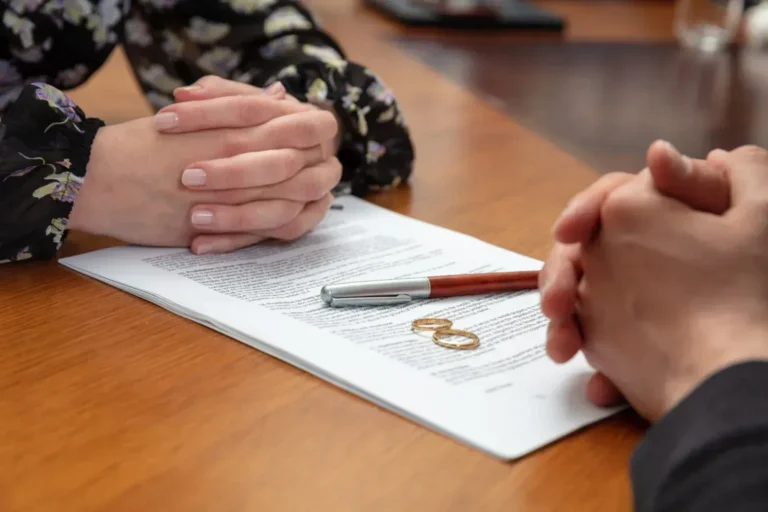Common Law Marriage in Michigan
Searching for clear answers about common-law marriage in Michigan can be confusing. As experienced divorce lawyers at ReedsAndReeds, we want to make it simple for you.
Does Michigan acknowledge common-law marriage? Let’s explore what this means for your relationship. Join us as we unpack the facts and provide the guidance you need.
According to Michigan law, common law marriages are not recognized in the state. Only marriages that are officially licensed and solemnized are valid.
What is Common Law Marriage?
Did you know that in common law marriage, a couple is legally recognized as married without ever having a formal wedding or getting a marriage license?
Essentially, for a couple to be considered common law married, they must live together for a certain amount of time, act like they’re married, and intend to be married. Each state has its own rules about common-law marriage; some states recognize it while others do not. In states where it’s recognized, couples have the same rights and responsibilities as those who are legally married, such as inheritance, property rights, and making medical decisions for each other.
In a basic sense, however, just living together isn’t enough to be common law married; you must meet all the state’s requirements. Common law marriage isn’t as common today as it used to be because many couples prefer to get legally married or enter into domestic partnerships to ensure they have legal protections and benefits.
Common Law Marriage in Michigan: Does It Exist?
Michigan does not recognize common-law marriage.
To cut a long story short, to be legally married in Michigan, a couple needs to get a marriage license and have an official wedding ceremony with a qualified officiant. Just living together and calling yourselves married isn’t enough to be considered legally married in Michigan. Without the right paperwork and ceremony, couples don’t get the same legal rights and protections as those who are officially married.
Primarily, it’s important for couples to know Michigan’s marriage laws to make sure their relationship is legally recognized and protected. Unlike some other states, Michigan doesn’t recognize common-law marriage. So, if couples want their relationship to be legal, they need to get a marriage license and have a formal ceremony. Not doing this can mean losing legal rights and protections if the couple separates or faces other legal issues.
Michigan’s Legal Stance on Common Law Marriage
Adding to past comments, Michigan does not acknowledge the legality of common-law marriage.
By definition, to be legally married in Michigan, a couple needs to get a marriage license and have a wedding ceremony led by someone who is allowed to do so. Just living together and saying you’re married doesn’t make it legal in Michigan.
Generally speaking, if a couple doesn’t go through these steps, they might not have the same legal rights as those who are officially married. Couples thinking about a common-law marriage should understand the legal issues and get advice to make sure their relationship is legally protected.
Rights of Couples in Non-Marital Relationships
Based on what we said before, in non-marital relationships, couples can still have legal rights and responsibilities, which differ significantly across jurisdictions.
In a basic sense, couples who are not married have the right to make their own decisions about money, property, and healthcare. They can also sign agreements, like living-together contracts or power of attorney papers, to look out for each other. However, they might not have the same legal protections as married couples, such as automatically inheriting from each other or making medical choices for their partner.
Largely, these couples need to know their legal rights and responsibilities. They should take steps to protect themselves, like making wills or naming someone to make healthcare choices if they get sick. Unmarried couples should also be aware of possible problems with taxes, property ownership, and child custody.
Getting legal advice can help unmarried couples handle these tricky issues and make sure their rights are protected.
Alternatives to Common Law Marriage in Michigan

As we concluded before, in Michigan, cohabitation agreements can serve as an alternative to common-law marriage since common-law marriage is not recognized.
To put it simply, in Michigan, couples can’t have a common-law marriage, but they have other options to make their relationship official and get legal protections. They can get a marriage license and have a ceremony with an authorized person to make it a legal marriage. This gives them legal rights that unmarried couples don’t get.
At the base, another option is to enter into a domestic partnership agreement, which sets out rights and responsibilities similar to those in a marriage.
Couples should talk to a lawyer to make sure their relationship is legally recognized and their rights are protected. So, even though common law marriage isn’t allowed, there are still ways for couples in Michigan to formalize their relationship and get legal benefits.
The Closing Remarks
Summarizing earlier points in Michigan, common law marriage is not recognized, meaning couples must meet specific legal requirements to be considered married.
What ReedsAndReeds is advising you to think about is, that unmarried couples need to understand the implications of not being legally married in terms of property rights, inheritance, and other legal issues. Couples should consult with a legal professional to ensure their rights and interests are protected.







